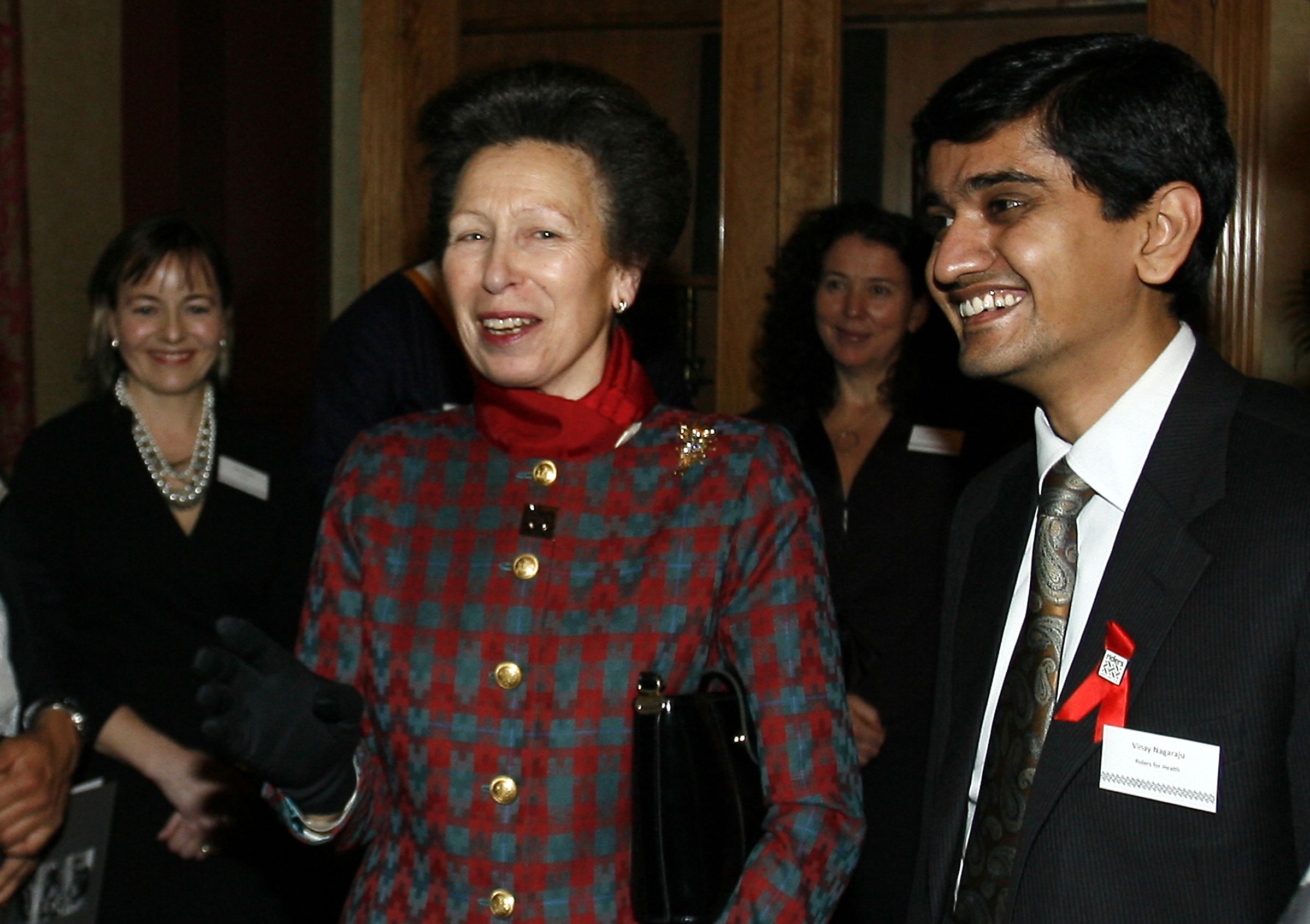Riders for Health: how an Indian overseas worker is helping impact the lives of 14 million people in Africa

There are more than 25 million Indians currently living abroad. Unevenly distributed across the globe, this diaspora is very large, and is ranked just next to the Chinese and the Jewish diaspora in size. The population includes scientists, engineers, software/IT professionals, skilled workers, semi-skilled workers, and students.Today’s story is about one of them. Vinay Nagaraju, a computer science graduate from Bangalore, who started his career in a tech company. But he felt something was missing, this lead to him founding Spandana, a NGO that adopted schools and supported students by providing them with scholarships.
After some years, he started to be more interested in management and he wanted decided to do an MBA. He chose Oxford and invested every last rupee he had. “The MBA was an enriching and a transformative experience; it gave new perspectives, stimulated ideas and opened up innumerable opportunities to connect with people across the world. I had classmates from around 50 countries and took up courses as varied as social enterprise and macroeconomics, finance and operations,” says Vinay.
From an MBA from Oxford to social entrepreneurship
After finishing his MBA from Oxford, he didn’t have a clear idea about what to do.
Luckily, he met Pamela Hartigan, managing director of Skoll Centre for Social Entrepreneurship at Saïd Business School, who advised him to take up a career in social entrepreneurship and introduced him to the founders of Riders for Health, Andrea Coleman, CEO of the organisation and Barry Coleman, Executive Directors. Riders for Health impacts 14 million people in 7 countries in Africa and works towards improving access to regular healthcare. Their efforts are recognized by the Skoll Foundation, Ernst & Young and Aspen Institute. After working for 6 months as a business analyst, he made fast progress and became COO, responsible for operations in Africa.
Riders for Health: their story
One of the reasons that pushed Vinay to join Riders for Health was the story behind the company. In 1988, Barry Coleman and Randy Mamola, visited Somalia and were shocked to see vehicles meant to deliver healthcare lying derelict because there was no basic maintenance infrastructure – the supply chains were poor and there was an absence of technical skills to perform maintenance. International development agencies were oblivious to the fact and spent valuable resources in buying new fleets of vehicles, rather than invest in maintenance. The urge to do something about the state of affairs is what caused Andrea and Barry Coleman to start Riders for Health. Andrea generated funds from the motorcycling community and established the organization, while Barry developed the operations. The goal of the organization was to improve the maintenance infrastructure and work with governments, with their ministries of health enabling them to deliver healthcare reliably and to remote parts. “Currently, we work in public-private partnerships with governments and other NGOs in sub-Saharan Africa providing comprehensive fleet management services, to enable delivery of health care. It is a complementary relationship: we manage transport, while the governments deliver health care,” explains Vinay.

The approach to the problemRiders for Health works with two kinds of health care: emergency and prevention. The first one is fundamental to solving urgent problems and accidents, while the second is very important to help people taking tests and getting their diagnosis in a speedy fashion preventing the spread of disease such as HIV. “Process efficiency is one of our key drivers. We always work to continuously improve our processes and systems. We price our services with a unique ‘cost per km’ and charge our partners at a not-for-profit rate. In this way, we improve budgeting and planning, as well as ensure transparency to our stakeholders,” tells Vinay.
Gambia: a successful example
Governments start with a pilot project and then they expand their reach year by year by working with Riders for Health. “It is a common misconception that all governments in Africa are corrupt and difficult to work with. In the last two decades, Riders for Health has always been able to find and work with key decision makers that care to improve systems, make a difference to their communities and are willing to embrace change. The difficult thing is convincing stakeholders the difference that transport and logistics can bring about to their efforts of healthcare delivery,” says Vinay. A great example of their impact is reflected in Gambia, which is the first country in Africa that has fully functional healthcare system, thanks in part to Riders for Health. For this project Gambia won the Resolve Award in Aspen Institute’s Global Leaders Council for reproductive health.
Human capital and future perspective
Currently Riders for Health has a team of 422 people working in 8 different nations: UK, is the headquarters, the other countries are Kenya, Lesotho, Malawi, Nigeria, Gambia, Zambia and Zimbabwe. They have a very interesting philosophy regarding workers in Africa, “100% of our employees come from the countries we are working in. We identify talent, build competencies and empower locals to manage all operations. This is a great sustainability driver and a way to bring about real development,” explains Vinay.
Riders for Health is recognized as one of the biggest social enterprise in the world, but they don’t plan to stop their impact “In the next 5 years we plan to reach 25 million and expand in at least 3 other countries,” adds Vinay.









![[Funding alert] Recruitment startup Apna.co raises $8M from Lightspeed, Sequoia](https://images.yourstory.com/cs/2/220356402d6d11e9aa979329348d4c3e/apna-1598902778742.png)
![[Funding alert] Biofourmis raises $100M in Series C round led by SoftBank Vision Fund 2](https://images.yourstory.com/cs/2/e641e900925711e9926177f451727da9/Imageoece-1599116917950.jpg)
![[The Turning Point] Need to upskill led couple to launch online learning platform for students and professionals](https://images.yourstory.com/cs/2/79900dd0d91311e8a16045a90309d734/turningpoint-800x400option1-1596174232912.png)
